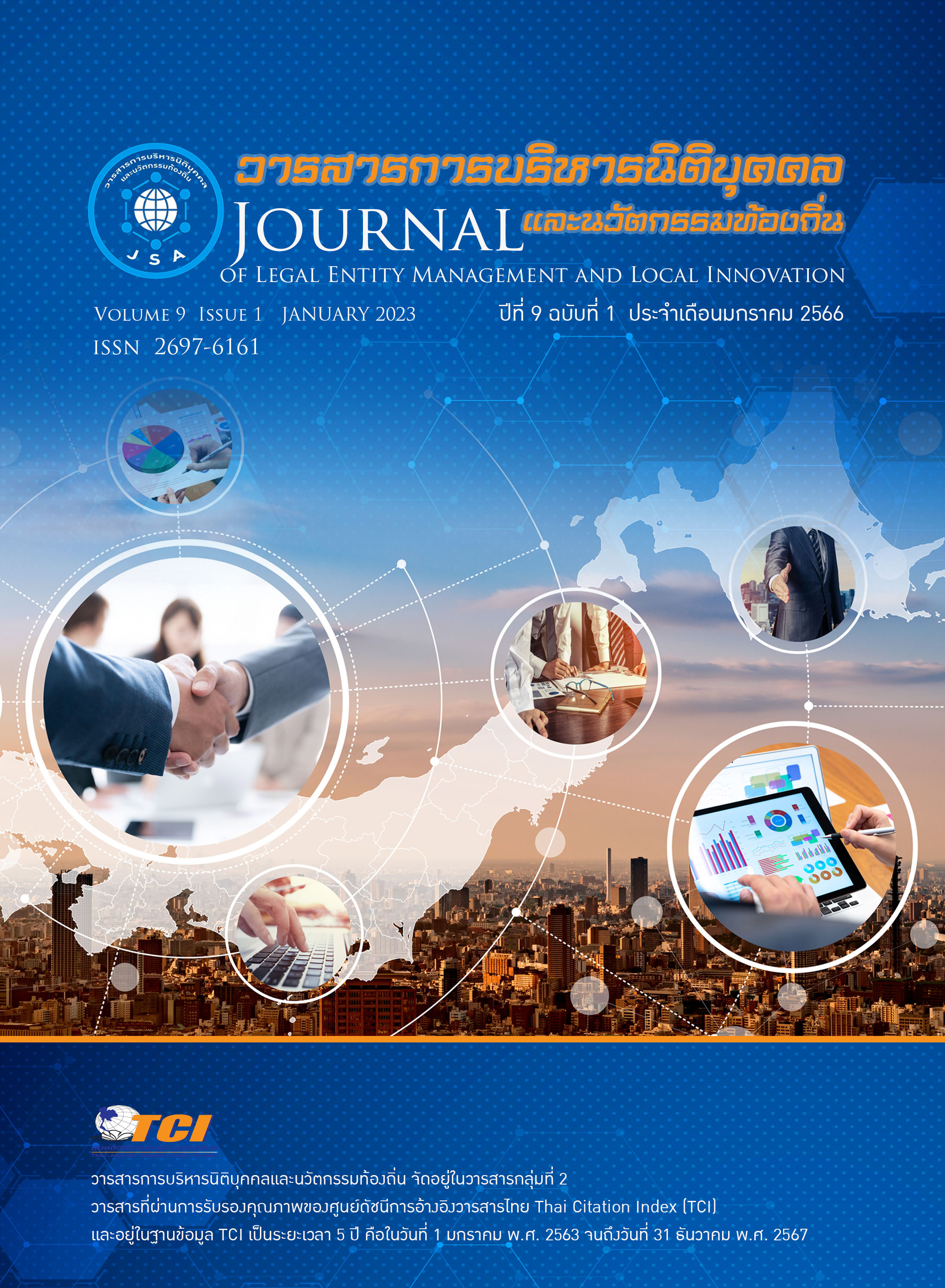The Effects of Perceived Risk from the COVID-19 Pandemic and Emotional Solidarity on Support for Tourism of Local Residents in Lanta Island, Krabi Province: The Role of Attitudes
Keywords:
Perceived Risk, Emotional Solidarity, Support for tourism, Attitude, COVID-19Abstract
The aims of this research were to 1) study the effect of perceived risk on support for tourism; 2) study the effect of emotional solidarity on support for tourism; 3) analyze attitudes as a mediating variable of the relationship of perceived risk and support for tourism; and 4) analyze attitudes as a mediating variable of the relationship of emotional solidarity and support for tourism. This study is quantitative research and a questionnaire is a research tool used to conduct survey. Data collection is purposive sampling from 400 respondents who were local residents living in 5 sub-districts, Koh Lanta district in Krabi province at least 3 years. Statistical techniques utilized in data analysis were descriptive statistics, confirmatory factor analysis and path analysis. The findings demonstrated that: 1) local residents' perceived risk had a statistically insignificant negative effect on support for tourism ( = 0.045, p = 0.869) 2) the emotional solidarity had a statistically significant positive effect on support for tourism (= 0.124, p = 0.018) 3) the positive attitudes had an effect as full mediation on the relationship between perceived risk and support for tourism (= 0.041, p = 0.000) and 4) the positive attitudes had an effect as partial mediation on the relationship between emotional solidarity and support for tourism (= 0.131, p = 0.001) Overall, the findings indicated that local residents welcome tourists. However, they would like government agencies to have strict public health measures in place to screen tourists. As a result of this research, tourism-related organizations will be able to promote tourism policies or activities in order to revitalize the economy and adjust strict public health measures in order to build trust among local residents.


